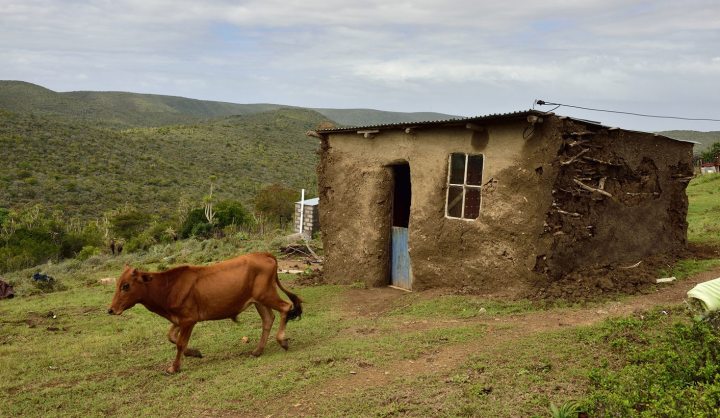Maverick Life, South Africa
Health-E: Death, dying and silence in the Eastern Cape

One year after the South African Human Rights Commission found that the Eastern Cape had failed to uphold the rights of its citizen to emergency medical care, death and dying continues in the Eastern Cape and communities are still waiting for answers, writes NTSIKI MPULO for HEALTH-E NEWS.
In March 2015, the South African Human Rights Commission held a provincial hearing into the state of emergency medical services in the Eastern Cape. The commission’s subsequent report found shortages of emergency medical services and patient transport vehicles as well as poor roads and budgeting contributed to the Eastern Cape’s failure to fulfil the rights of citizens to emergency medical care. The commission gave the province six months to respond to its report.
Today, the province’s shortage of emergency medical services and patient transport vehicles continues to put lives at risk – and may threaten to turn even common illnesses into life-threatening emergencies.
Usapha Mtambeka lives about 100km outside Mthatha. Confined to a wheelchair, Mtambeka is largely unable to navigate the dirt roads between her home and the nearby Zithulele Hospital. Her difficulty in accessing health services meant that Mtambeka waited a week to call an ambulance after she began experiencing sharp pelvic pains and had difficulty urinating.
Her call would mark the start of a four-day journey to treat a simple urinary infection.
After hours of waiting, the hospital’s only ambulance arrives and takes Mtambeka to Zithulele Hospital where she waits for hours before being told the medicine she needs is not available at the hospital and that she will have to travel 100km to Mthatha’s Nelson Mandela Academic Hospital for treatment.
Health workers put in a call to a dispatch centre at Mqanduli, 55km away, for a patient transport vehicle to be sent to collect Mtambeka. It arrives the following afternoon. Mtambeka has spent the night sleeping in her wheelchair.
By the time Mtambeka arrives at Nelson Mandela Academic Hospital, it is too late for her to be seen by a doctor. She spends another night sleeping in her wheelchair.
Mtambeka is finally treated on the third day. However, by the time she is seen by a doctor and collects her medication, it is too late to catch the patient transport back to Zithulele Hospital. She spends a second night at Nelson Mandela Academic Hospital – it is her third night in a row sleeping in her wheelchair – before going home the following day.
Although urinary tract infections are easily treatable with antibiotics, they can lead to more severe conditions including kidney damage and sepsis if left untreated.
For patients such as Mtambeka, delayed care due to the lack of emergency medical services and patient transport risks turning everyday conditions into life-threatening emergencies.
At the South African Human Rights Commission hearing more than a year ago, the Eastern Cape Department of Health made significant commitments such as increasing its emergency medical services budget to increase emergency medical services staff and the proportion of 4×4 ambulances.
The department also said it would ensure that no one waited for an ambulance for more than four hours.
According to the commission, the department met the 2 April deadline for responding to the report. Representatives from the civil society Eastern Cape Health Action Crisis Coalition have requested a copy of the department’s response from the Eastern Cape Department of Health but the department has told the coalition to get the report from the commission itself.
Meanwhile, the commission has said it cannot confirm when the department’s response will be made available to the dozens of people who testified at the hearing, including people like Xolisile Sam, who wants to know why his sister died after waiting five days for an ambulance.
Mtambeka’s story is a clear sign that things have not improved in the Eastern Cape, and that many of the commission’s recommendations have not been implemented.
More than a year after hearings into the province’s emergency medical services crisis, it is clear that the Eastern Cape crisis is far from over. – Health-e News. DM
- Ntsiki Mpulo is a writer for public interest law organisation Section27, which is a member of the Eastern Cape Health Crisis Coalition.
Photo by South African Tourism via Flickr.

















 Become an Insider
Become an Insider